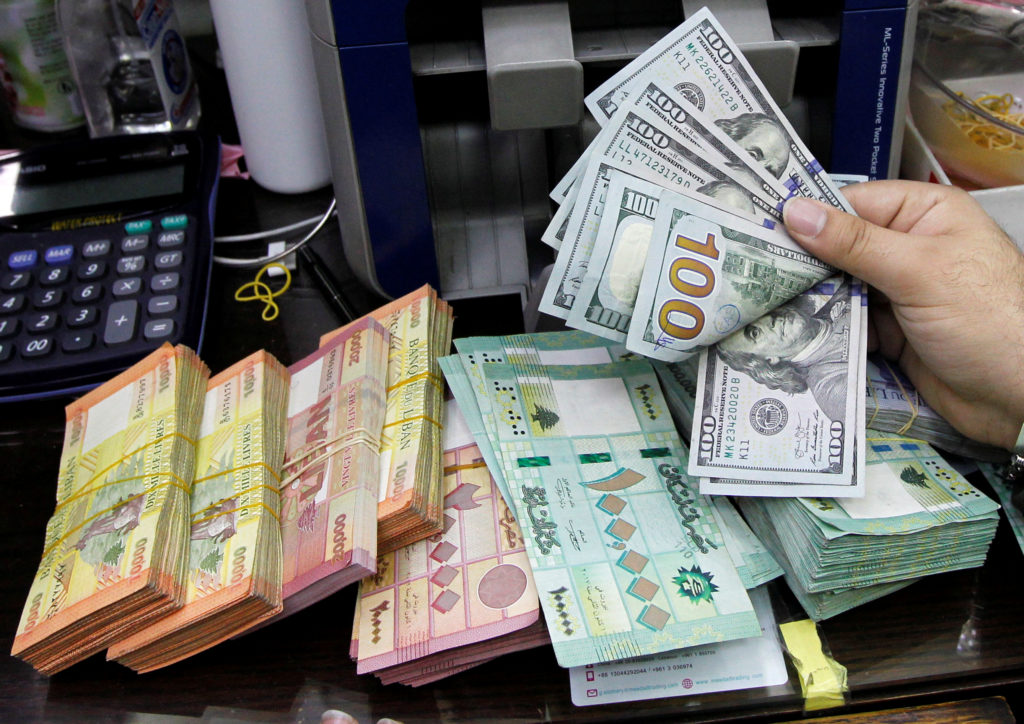
FILE PHOTO: A man counts U.S. dollar banknotes next to Lebanese pounds at a currency exchange shop in Beirut, Lebanon April 24, 2020. REUTERS/Mohamed Azakir/File Photo
Amid currency crisis and fluctuation in oil prices, the country’s gross foreign reserves dipped by nearly $600 million in December alone. This raises fresh concerns about the short to medium-term stability of the foreign exchange market.
The figure closed at $40.59 billion on December 22 as against $41.19 billion, bringing the net gain within the period to -$598.93 million. The last reported figure in the month, as at press time—$40.59 billion, was the lowest since October 18, 2021. Then, the gross reserves figure was $40.39 billion.
It remained in an upswing thereafter, reaching a recent all-time high of $41.82 billion on October 29 before it started a gradual but consistent decline.
On a month-on-month (M-o-M) basis, the reserves lost $720.07 million. The gross external reserves as reported by the Central Bank of Nigeria (CBN) on November 22, 2021, was $41.37 billion, putting the month-on-month loss at approximately two per cent.
Despite the recent depletion, the reserves are closing on a positive note this year. The gross reserves opened the year at $35.65 billion while the liquid component (the part available for use) was $35.31 billion. That puts the year-to-date (YTD) gross reserves gain at $4.94 billion or 14 per cent.
In 2020, the gross component opened at $38.536 billion and closed the year at $35.37 billion, losing about 8.2 per cent. The loss reflected the crisis in the international oil market and other macroeconomic challenges associated with the COVID-19 crisis the country had to battle with.
The run on the reserves was carried over to this year as the figures continued to witness consistent tumbling amid rising import bills. While some economists raised the alarm that the country was heading to a serious crisis, the apex bank insisted the country remains in a comfort zone.
There was a breather as a gradual accretion began around September. The rally in the international oil market and the country’s $3.35-billion share from the International Monetary Fund (IMF)’s Special Drawing Rights allocation of $650 billion helped Nigeria to gain traction.
At the France-Nigeria Security and Economic Summit, France, recently, the CBN Governor, Godwin Emefiele, said the reserves would surpass $42 billion by the middle of next year.
“Nigeria’s external reserves are expected to surpass $42 billion by mid-2022. This is due to the sustained increase in crude oil price, the impact of Eurobond Issuance, and the stable exchange rate condition,” Emefiele assured his hosts.
Falling reserves put pressure on foreign exchange (FX) rates and raise concerns about the country’s ability to fulfil its foreign currency financial obligations. Nigeria has had an extensive currency crisis this year as supply could not match rising dollar demands.
The CBN, in efforts to boost supply from the supply, introduced the Naira-4-dollar scheme, an incentive to reward recipients of remittance with N5 for each $1 wired through the official window. The decision followed other reforms of the remittance management to concede to recipients the right of cashing out remittances in hard currencies.
The monetary authority also stopped the funding of bureau de change (BDCs) and handed over the retail disbursement of FX to deposit money banks (DMBs). Despite the incentives, the road to stability has remained bumpy. The exchange rate at the black market yesterday was N560/$ while the official market rate closed at N515/$.








